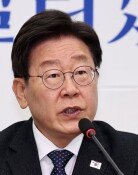Japan backtracks on wartime forced labor after winning UNESCO recognition
Japan backtracks on wartime forced labor after winning UNESCO recognition
Posted July. 07, 2015 07:10,
Japan has backtracked on its acknowledgment of wartime forced labor following a UNESCO session decided to list two dozen old industrial locations listed as World Heritage sites. Japan conceded to South Korea`s demand that the registration statement make clear that seven of the 23 industrial facilities used forced laborers from Korea during the colonial period. After the sites` listing was decided, Japan claims that Tokyo did not admit such labor was forced. After seeking a diplomatic compromise with South Korea to secure the listing, Japan is now saying a totally different thing as soon as it accomplished its goal.
At the UNESCO session in Bonn, Germany, Japan openly announced in English, "There were a large number of Koreans and others who were brought against their will and forced to work under harsh conditions in the 1940s at some of the sites." As Seoul accepted a proposal to include the fact in the footnote of the listing statement, not in the main text, a UNESCO committee unanimously passed the listing application. The compromise reached by South Korea and Japan at the last minute is meaningful in that it was Tokyo`s first acknowledgement of forced labor before the international community.
However, the Japanese government translated the English wording "against their will...forced to work" into Japanese words equivalent to "brought to work," as if there was no forced labor. In a news conference after the listing was decided, Japan`s Foreign Minister Fumio Kishida said the wording did not mean "forced labor."
At a news conference on late Sunday night, South Korea`s Foreign Minister Yoon Byung-se praised the two neighbors for having "avoided an extreme clash and resolved the issue through dialogue." However, he took the situation too easy. Had he made the remark despite his knowledge of Japan`s change of attitude, he had deceived the Korean public.
Japan also promised to set up an information center to honor the victims but there is no way for South Korea to have any influence in how the facility would be operated. If Tokyo fails to faithfully implement or disregards the measures it promised to take, its relations with Seoul will likely become aggravated. Japan`s about-face shows that its perception of history has not changed at all.
There are signs indicating gradual improvement in the strained ties between the two neighbors, as they are seeking to hold a summit this year. The key to the improvement lies in how sincerely Japan`s Prime Minister Shinzo Abe will admit Japan`s wartime atrocities in his special statement marking the 70th anniversary of the end of World War II. The shortcut to a brighter future depends on whether he frankly acknowledges Japan`s responsibility for aggression and colonial rule of the Korean Peninsula, including the sex slavery for the Japanese military. We expect Abe to make a wise decision.







